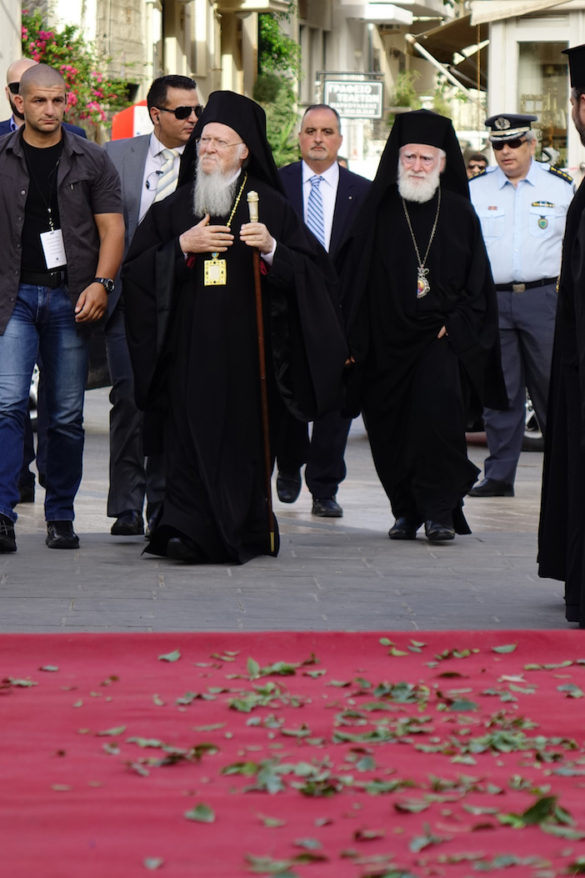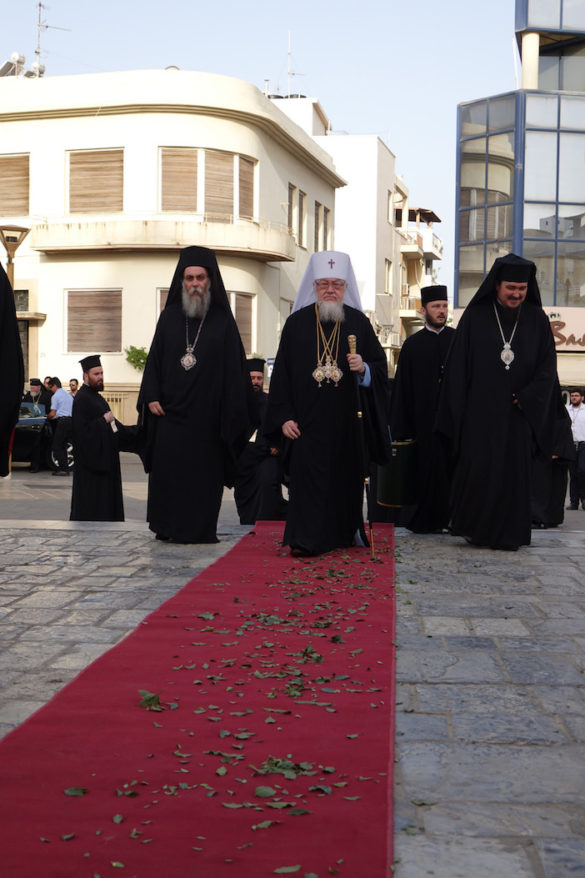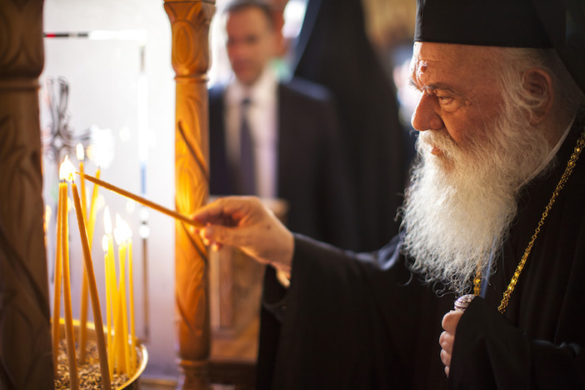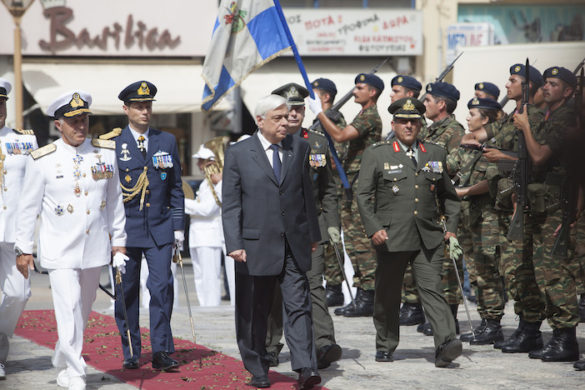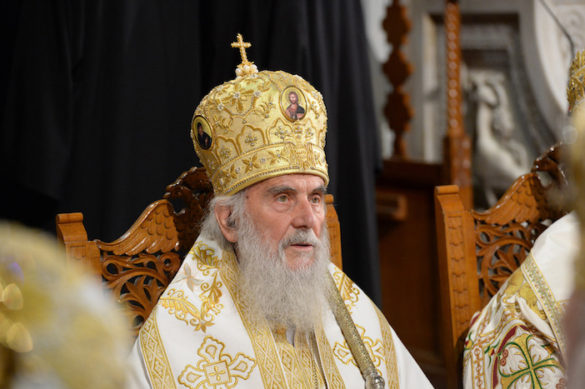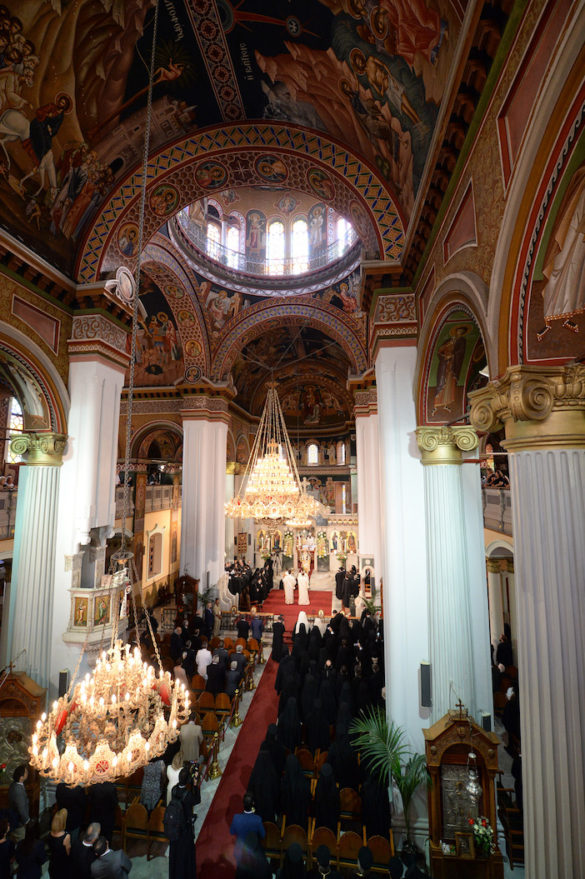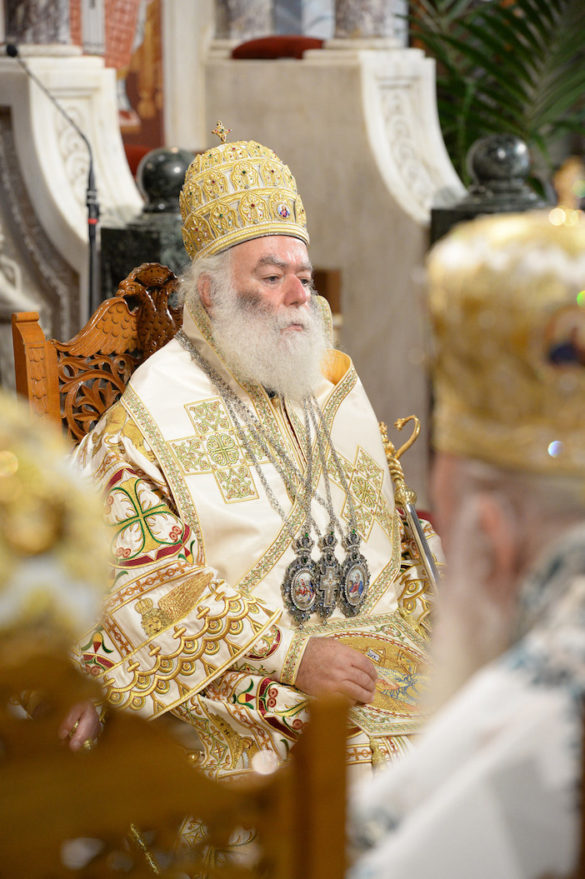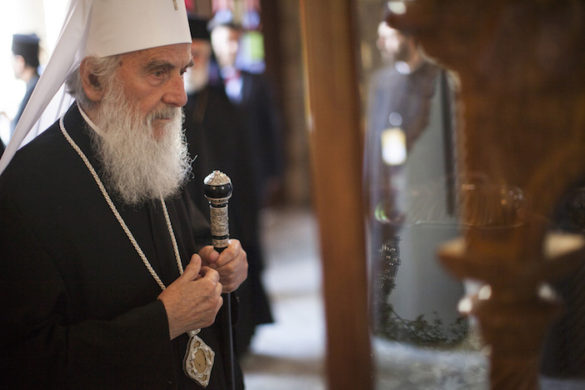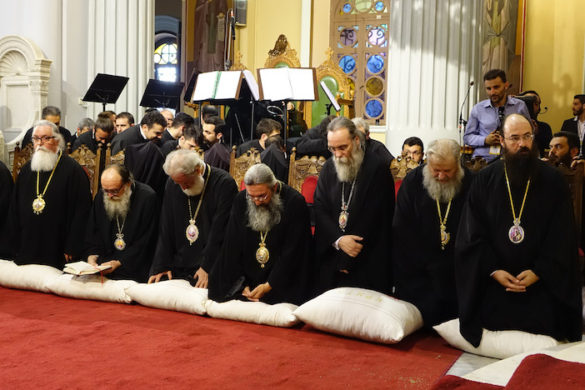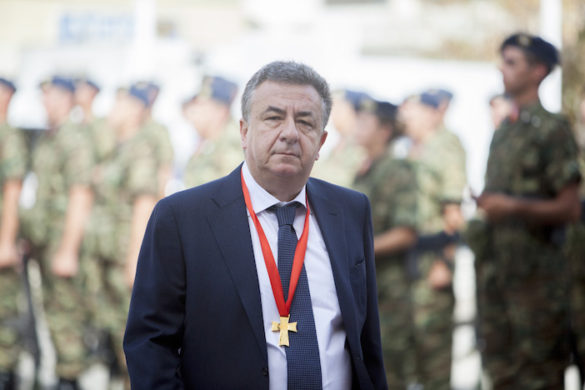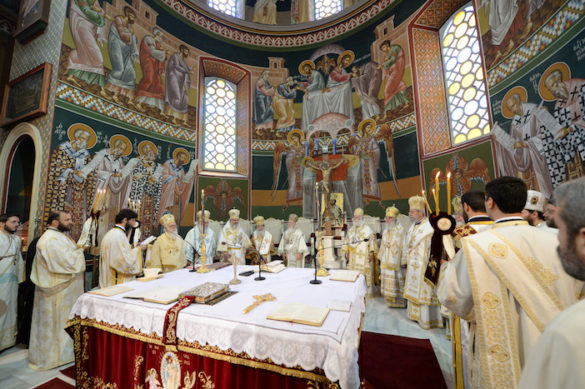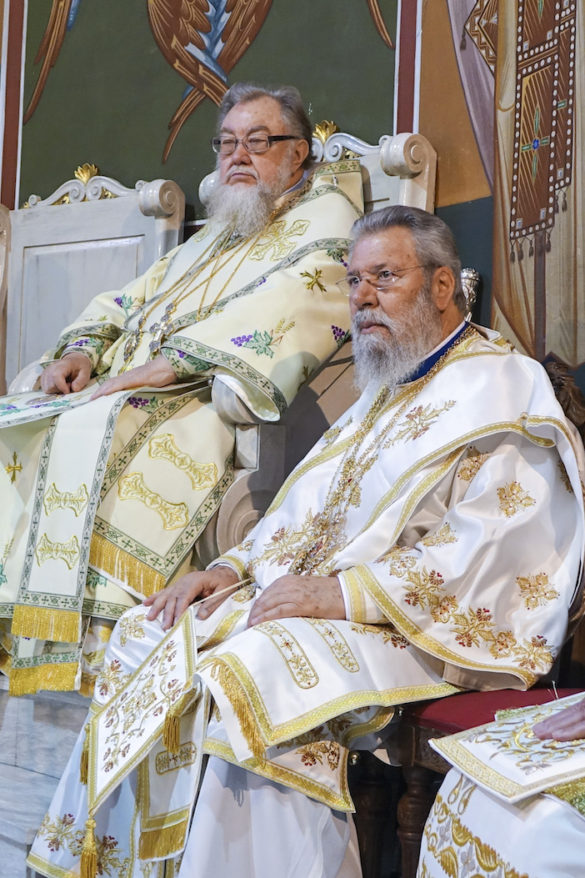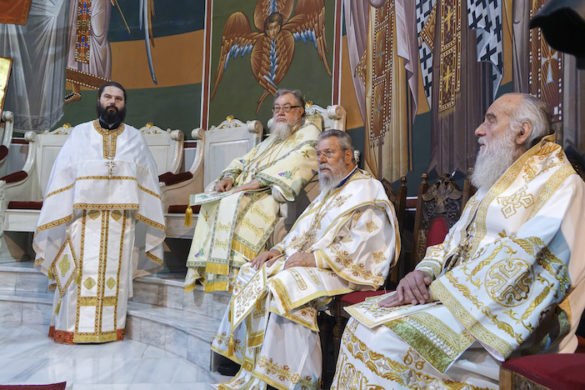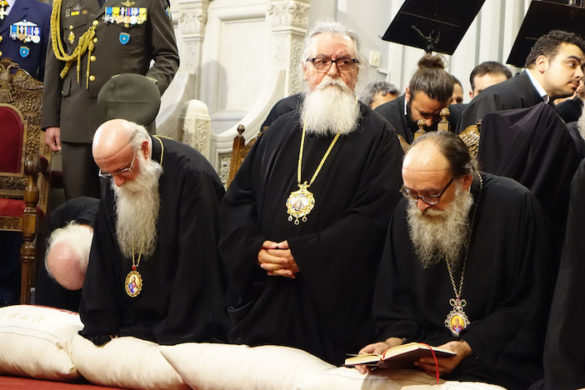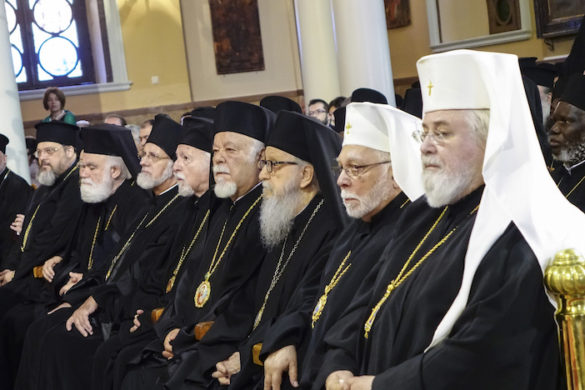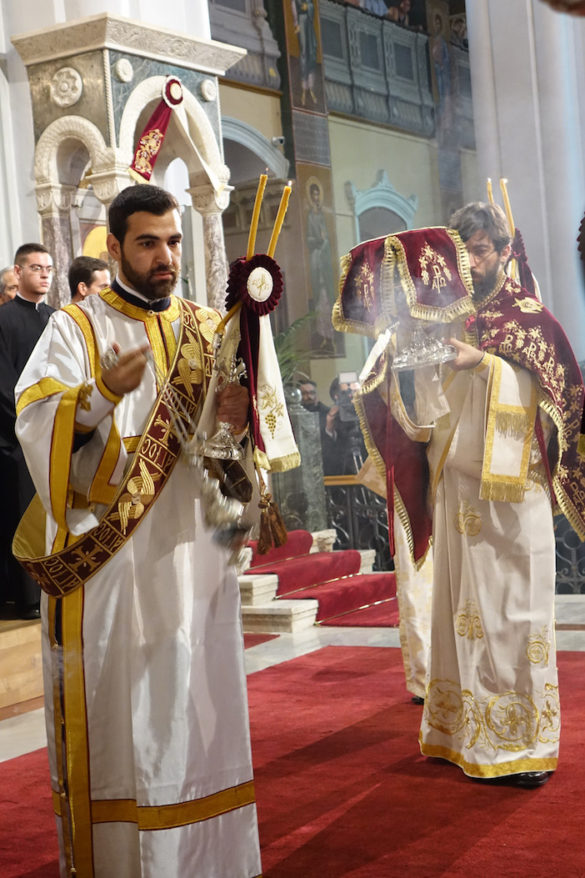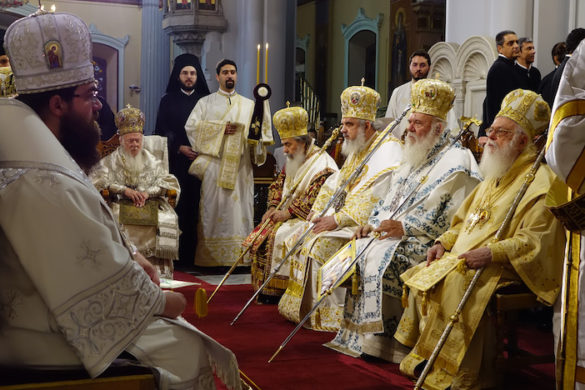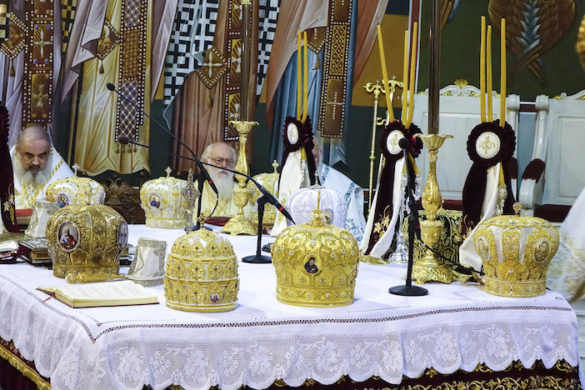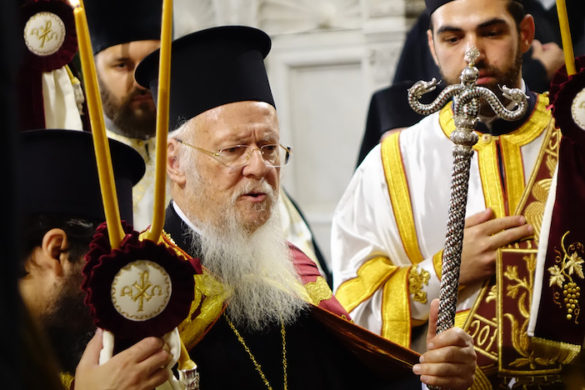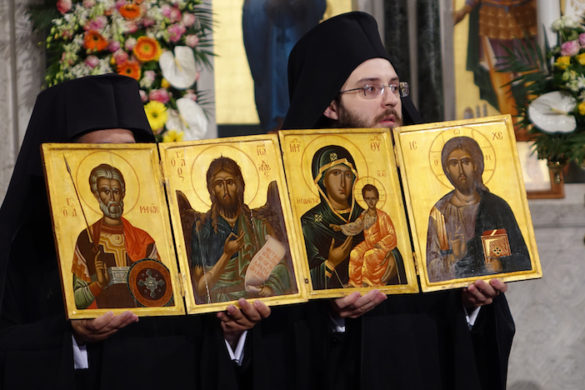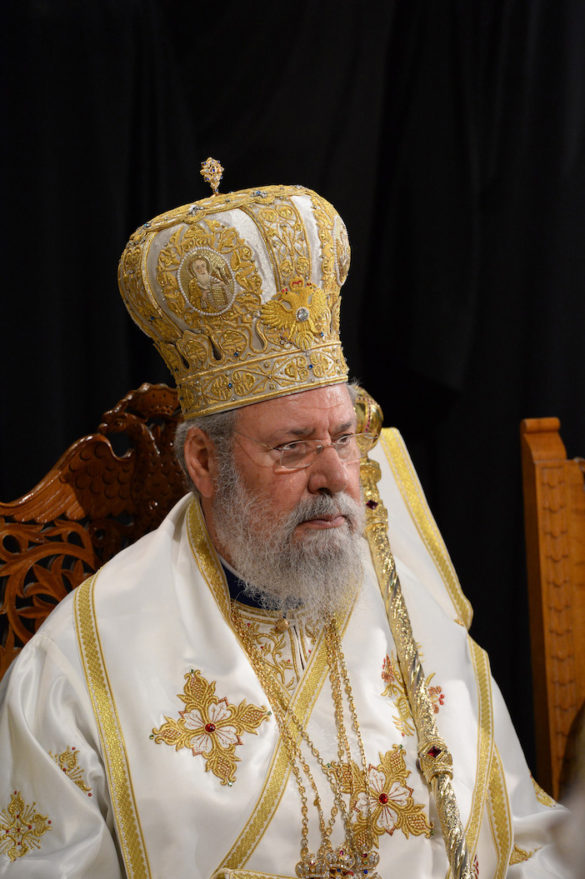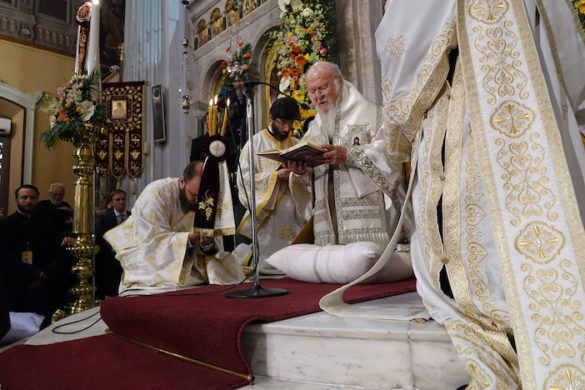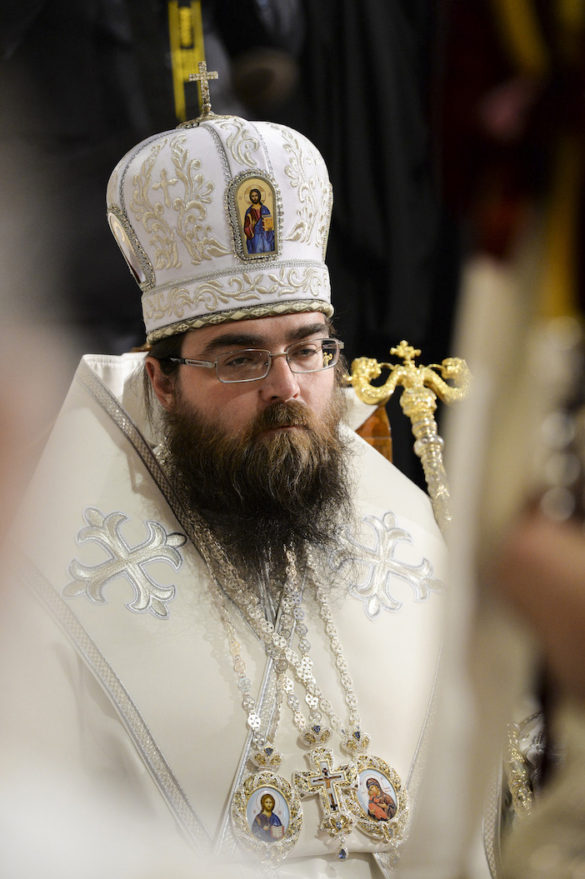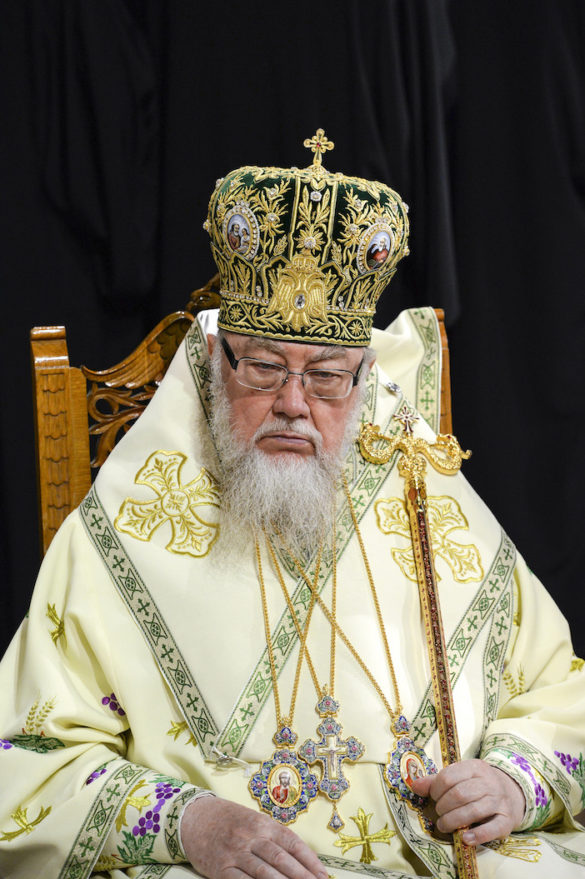In a four-hour Orthodox Christian service, the heads of the autocephalous Orthodox Churches concelebrated the Divine Liturgy on the great feast of Pentecost at the Metropolitan Church of Saint Menas in Heraklion on Sunday, June 19, 2016.
Ecumenical Patriarch Bartholomew, as the most senior Hierarch in the Orthodox Church, presided over the Divine Liturgy, and was joined by Patriarchs Theodore of Alexandria, Theophilos of Jerusalem, Irinej of Serbia, Daniel of Romania, and Archbishops Chrysostomos of Cyprus and Ieronymos of Athens and all Greece, Metropolitan Sawa of Warsaw and all Poland, Archbishops Anastasios of Albania and Rastislav of Czech Lands and Slovakia.
Addressing the Primates and an overflow crowd of bishops, clergy and laity both inside and outside the church, the Ecumenical Patriarch spoke of the unity and catholicity of the Church as a single Body of Christ symbolized by the feast of Pentecost, which Orthodox Christians celebrate as the day when the Holy Spirit came down and entered the original disciples of Christ.
Bartholomew’s words touched numerous points of contention and angst of contemporary Orthodoxy— a church that is “united” in faith and dogma, whose independent heads have complete and full jurisdiction over their church and territories, which are usually carved along national divides.
But as is often the case, the Churches have rivalry and conflict amongst themselves, the largest being that between Constantinople and Moscow, whose Patriarch Kirill, has overtly and covertly challenged the primacy of the Ecumenical Patriarchate of Constantinople, which has traditionally and historically been the “first amongst equals” of the Orthodox world.
Other local rivalries and distrust exists amongst Churches and hierarchs, as do beliefs as to how the overall Church is responding to contemporary times and how it’s adapting as such.
Antioch and Jerusalem are in a turf war over a tiny flock in Qatar and who has jurisdiction. That conflict led to Antioch’s refusal to participate in the Council taking place on Crete.
But bigger, more ideological differences exist.
The Ecumenical Patriarchate, which has a small flock in Turkey of native Greeks also has large numbers of faithful in the “New Lands” or the Orthodox Diaspora, including Asia, Europe, North America and Australia. As a result of the Ecumenical Patriarchate’s diversity it has been perceived by other, more conservative churches, to be liberal in both how it approaches its faithful, as well as its relations with other Christian Churches, namely the Roman Catholics.
In North America, for example and across much of Europe, pastoral “economia” has, strictly speaking, superseded Church Canon Law on matters pertaining to marriage. Orthodox Christians in these countries are permitted to marry other Christians who have been baptized in the name of the Holy Trinity, including Catholics. This has been done in order for these Churches to address the pastoral realities of functioning in diverse societies.
In countries such as Georgia and Bulgaria, this is unheard of and a strict interpretation of Canon Law is followed.
Furthermore, with regards to inter-Church relations with other Christian traditions, the more conservative bloc— the Bulgarians and the Georgians in particular, don’t even refer to Roman Catholicism and other Christian traditions as “churches” and some officially refer to all non-Orthodox Christian churches as “heresies.”
Bartholomew said in his remarks after the Divine Liturgy that “There is one Christ and we are all His joints and members. Through our distinctness, each Orthodox Church, as well as every faithful Orthodox Christian, are is joined to one body, each with his own gifts… So, over which we should not look to others with suspicion or anger, but instead rejoice as if they were our own.”
Clearly this was a veiled reference to his, as well as the Constantinople Patriarchate’s longstanding goal of advancing ecumenical relations— that is, the Orthodox Church’s relations with other Christian Churches.
Speaking specifically of the Holy and Great Council as a visible expression of unity, despite four Churches’ absence, the Patriarch noted that the road to unity “demands a living sacrifice, much work, and is achieved after great struggle.”
He added that “this Council of ours will contribute towards this direction by creating a climate of mutual trust and understanding.”
The Patriarch closed his homily with a prayer to the Holy Spirit: “Setting aside the problems that arise from our different ethnic backgrounds, we beseech the descent of the [Comforter] upon us all of us so that, illumined by Him, we may issue a message of truth, genuineness, and hope all across today’s world.”
This Divine Liturgy of the Pentecost marks the liturgical opening of the Holy and Great Council of the Orthodox Church— the first of its kind in over 1,000 years, and sets the tone for the inaugural session of deliberations on Monday, June 20, with the keynote address of he Ecumenical Patriarch.
Photos from the Divine Liturgy of the Pentecost at the Holy and Great Council of the Orthodox Church in Crete
